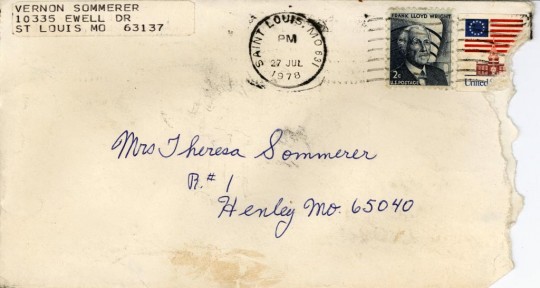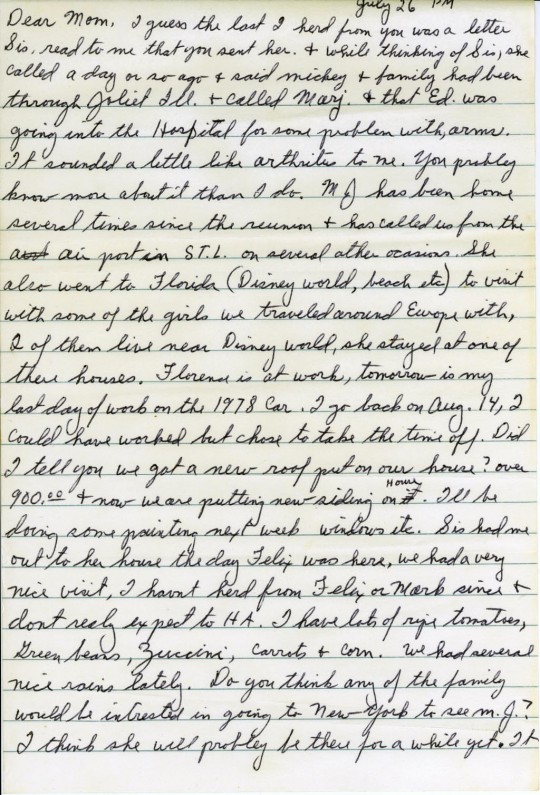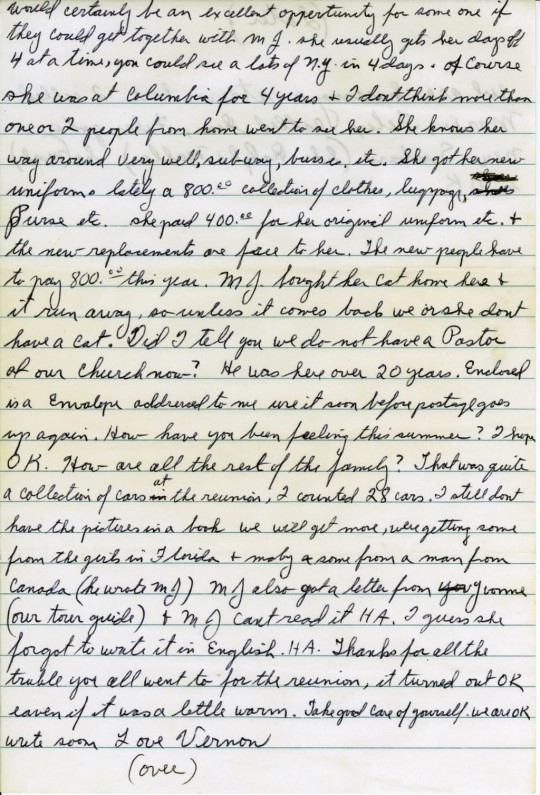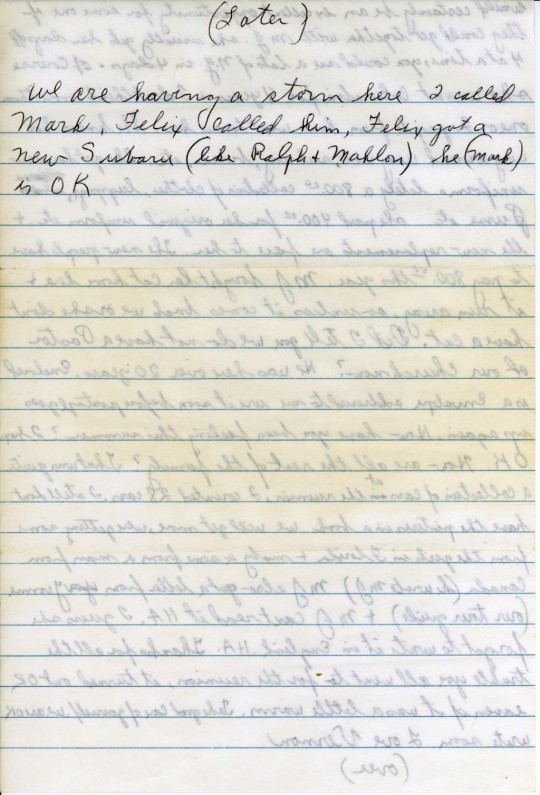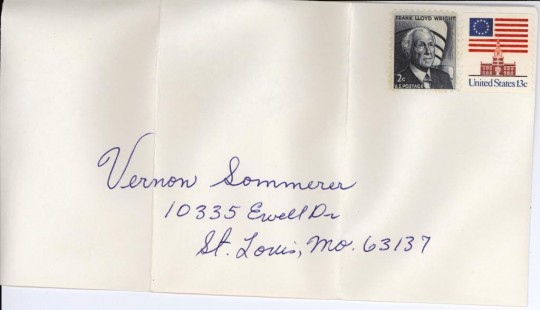This is the 10th part in the series of photos from Grandma and Grandpa’s 50 anniversary celebration. This is, of course, Uncle Vernon’s family.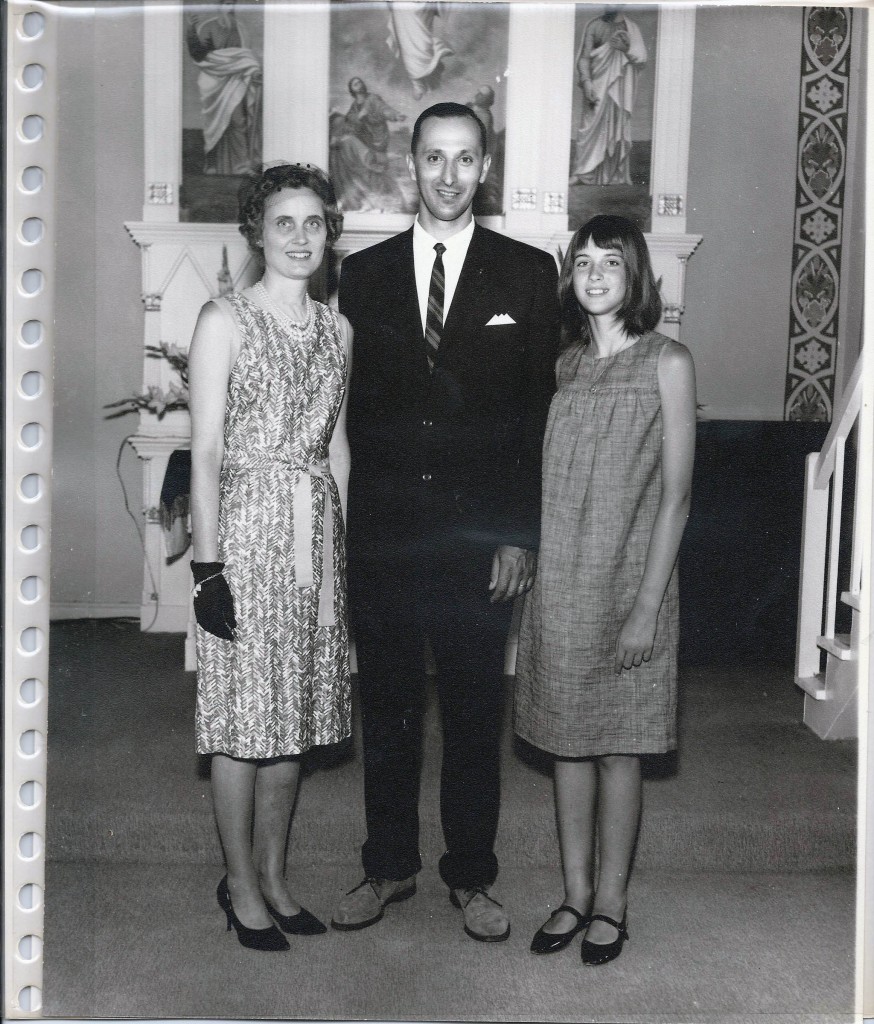
uncle vernon
Letter from Uncle Vernon and Aunt Florence 1979
Uncle Vernon in WW2 (part 12)
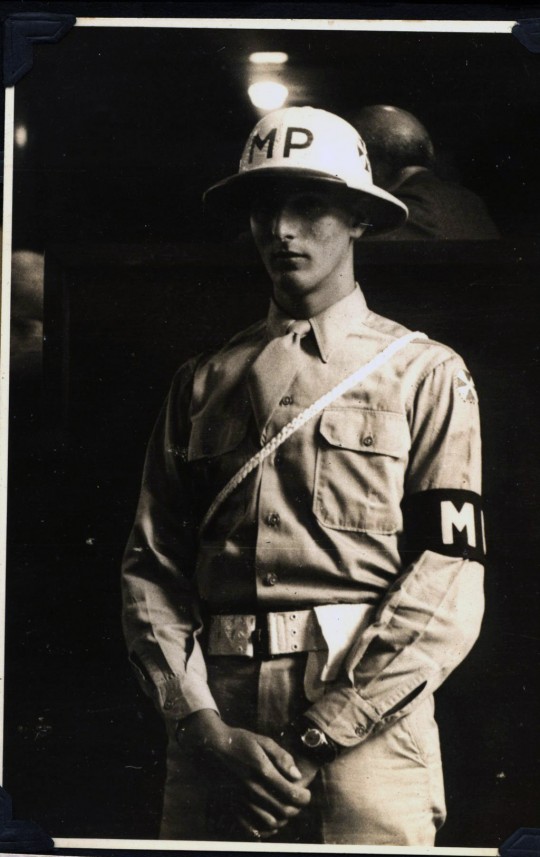
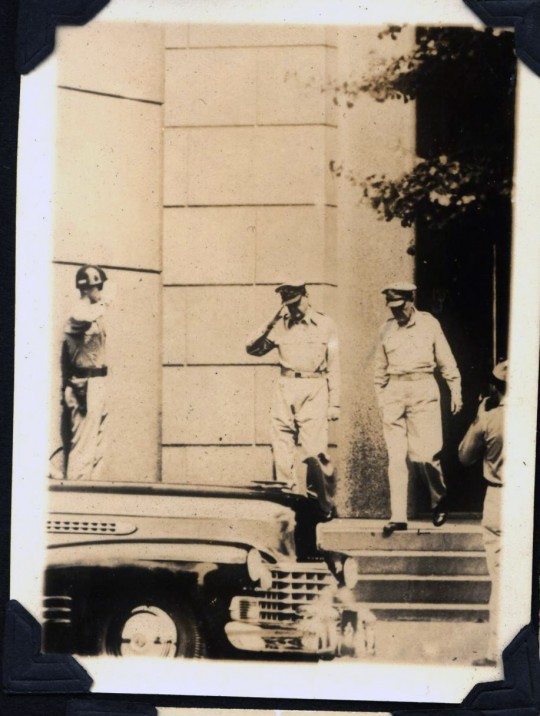
My trip home from Yokahama to the Golden Gate Bridge was uneventful in that the sea was very, very calm, with one exception. Our ship, the Fred C. Ainsworth, was an Army transportation-operated ship. It had a very light load, so the propellers or screws, as they were called, were not fully submerged in the water. Only half of the screws were submerged, while the back half of the ship was out of the water. This made for a very jerky ride. We got into the San Francisco harbor about 4 p.m. and the people on the shore didn’t want to process us, as it was nearing their quitting time, so we spent another night on board the ship. They moved the ship out far enough so no one would jump ship and swim to shore.
After we received our discharge on October 4, 1947, we were taken to the train station for our trip home. While waiting for the train, some of us went into town and purchased civilian clothes. They guy I went with was sorry he didn’t go into the service at age 17, as he spent two years in the service and couldn’t legally purchase a drink in his civilian clothes. Some of the boys did celebrate with booze and drank too much. One boy passed out waiting for the train, and his buddy had to carry him onto the train. Not long after we were on the train, the other boy passed out. Then the first to pass out woke up, and he didn’t know where he was. Ha.
I arrived home on my 21st birthday, October 8, 1949. Japan surrendered in August 1945 and the war crimes trials were already in progress for several months when I arrived there. I was credited by the Army with “wartime service,” as Congress didn’t get around to declaring WWII over until December 30, 1946 and I had already served in the Army for 8 months by then.
Until Mahlon writes the story of his time in the service this will be the first and last, because Bud and Felix left no written story.
Uncle Vernon in WW2 (part 11)
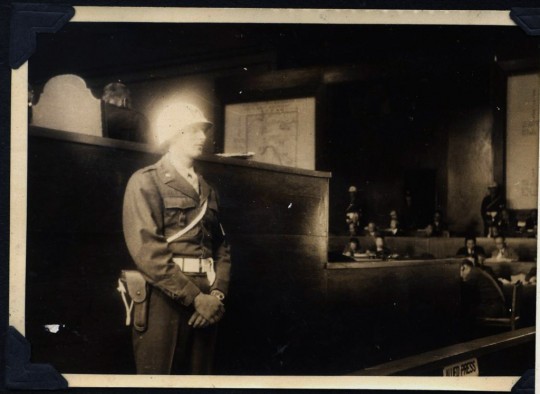
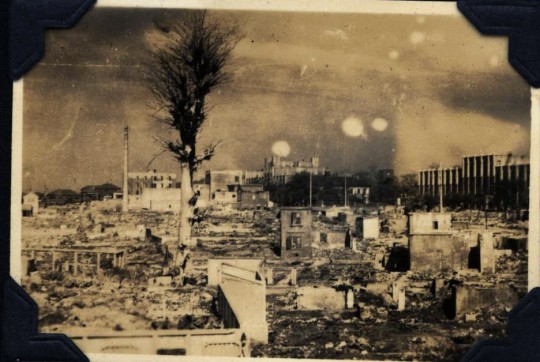
One time, I was pulling Front Gate Duty at night. About 2 a.m. I had a hard time staying awake. Sleeping on guard duty is a no-no in the Army so I was desperate for something to help keep me awake. I got out my 45 caliber pistol and accidentally shot a hole in the guard house floor. At that time of the night, we kept the gate closed. About a minute after Is not a hold in the floor, I heard the sergeant of the Guard approaching in his Jeep. I went out to meet him, expecting to get in trouble for firing my gun. I didn’t say anything. I expected he would have a lot to say to m;e. Well, evidently he hadn’t heard the shot and was just wanting to take the Jeep out for a drive. Finally he said, “Well, are you going to open that (blank blank) gate or what?” ha!
When I was relieved of duty to get packed to go back to the USA, after packing, etc., I decide to go up to the court room and watch the proceedings one more time. This time, from the Press section (I was usually standing behind the accused) after about 15 or 20 minutes, I started back down to my room. On the way to my room, I passed the Orderly Room. The first Sergeant was there by himself and he had just gotten a call to be in the court room immediately because the soldier who was taking my place had just passed out, and I was to be in charge of the Orderly Room while he was gone. I hadn’t been at the desk long, before the pone rant. It was the Medic in the dispensary. They wanted blankets from our company supply room clerk “on-the-double” to cover the guy that had passed out. I conveyed the order to the supply room clerk and went back to the desk. Later I noticed the supply room clerk had not left yet with the blankets. Evidentially I had not conveyed to him the urgency in getting the blankets to where they were needed. I went back in the supply room and raised my voice this time, to encourage a sense of urgency. When I got back to the desk, the phone rang, and I hadn’t yet calmed down sufficiently to use a proper “hello” on answering the phone. This time I got chewed out.
Uncle Vernon in WW2 (part 10)
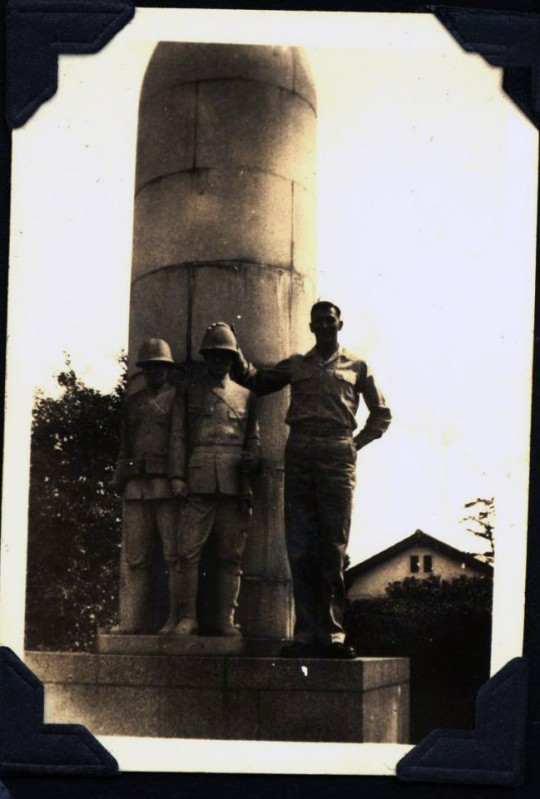
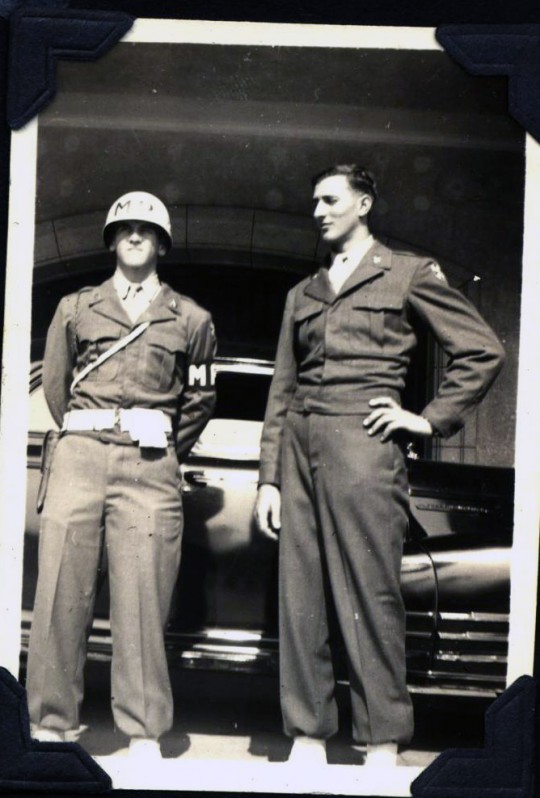
The winter of 1946 – 1947 was cold in Tokyo, and the ducks on the moat around the Imperial Palace froze right in the ice and couldn’t move until it melted.
One day, I took a street car ride. The cars were usually so crowed that two or three people hung on with the trolley car door open. I wound up being the third or forth one holding on at the door opening. All went well until I nearly got knocked off by the support post that held up the pole from which electricity was provided for the trolley. So after that, I pulled myself in closer to the trolley. Then all went black as the trolley entered a tunnel. I got closer to the car just in time.
Among the several things I did at the trials, one of which was working the Press Section doors. After I got to know the Press photographers, I didn’t require them to put down their cameras, etc, and show me a pass. They would be kind in return, and give me pictures of the court room proceedings.
The only other activity I was ever involved in was when they had a big 4th of July parade down town. We were asked to help provide an honor guard duty at the parade.
Uncle Vernon in WW2 (part 9)
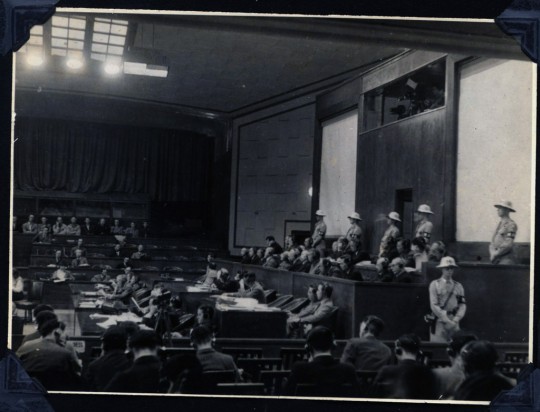
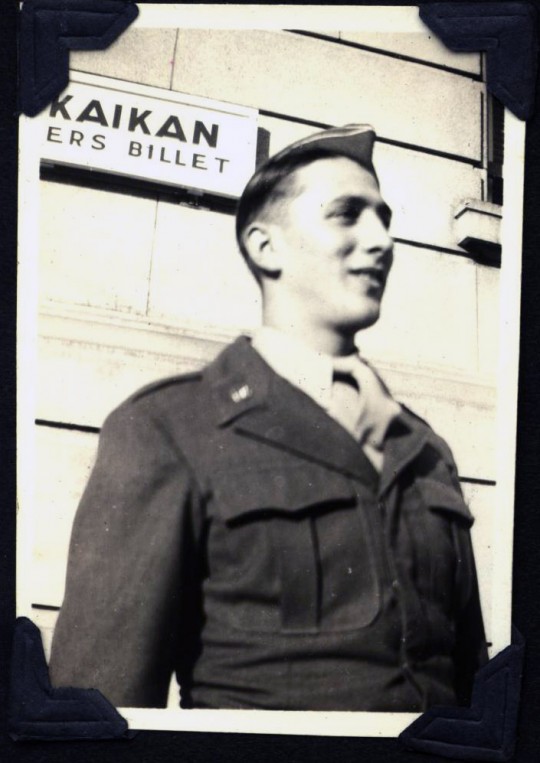
The Defense Language Department at the trials hired many people for translation work. There were three official languages plus more on certain occasions. One of the defense translators was a Japanese man who had lived in the U.S.A. for many years and was a medical doctor. The Japanese medical people didn’t recognize his American medical accreditation, so worked as a translator. He spoke perfect English. We bummed around together. He wore the official translator arm band. All transportation was free to us, so it was free to him, Dr. Kobashi, also. Once he brought his daughter out to see me. She was a nice looking young lady–a school teacher—and he asked me in front of her, if I would marry her. I don’t think fast on short notices. I just never said anything –yes or no. I guess I was too shocked.
General Douglas McArthur during WWII and after was the Supreme Commander of the Allied Powers. His office was in the DiechieBuilding in downtown Tokyo. I t was quite an attraction when he entered or left the building. I saw him many times. His wife and son attended the trials on several occasion while I was in the court room and saw them. A friend that I took Basic Training with at Ft.Knox worked in the DiechieBuilding. We also had church services in the large theater in the building.
Transportation was easy. There was a train station near the front gate. There were eleven judges and each had an American car with an American driver. The drivers were more than willing to drive us around because they got bored sitting around waiting for the court to adjourn so they could take the Judge home.

